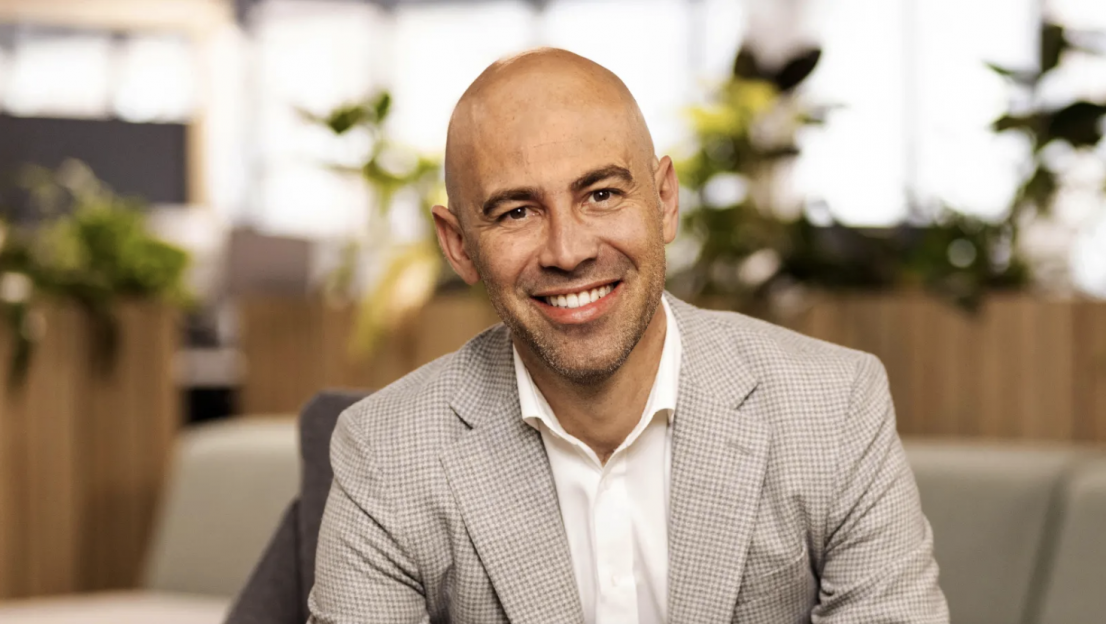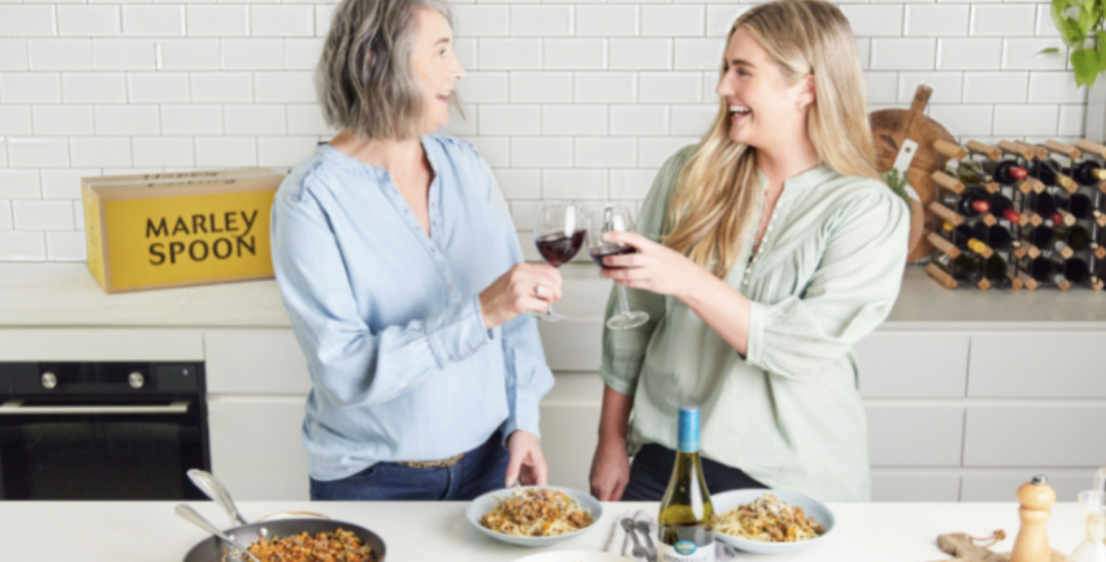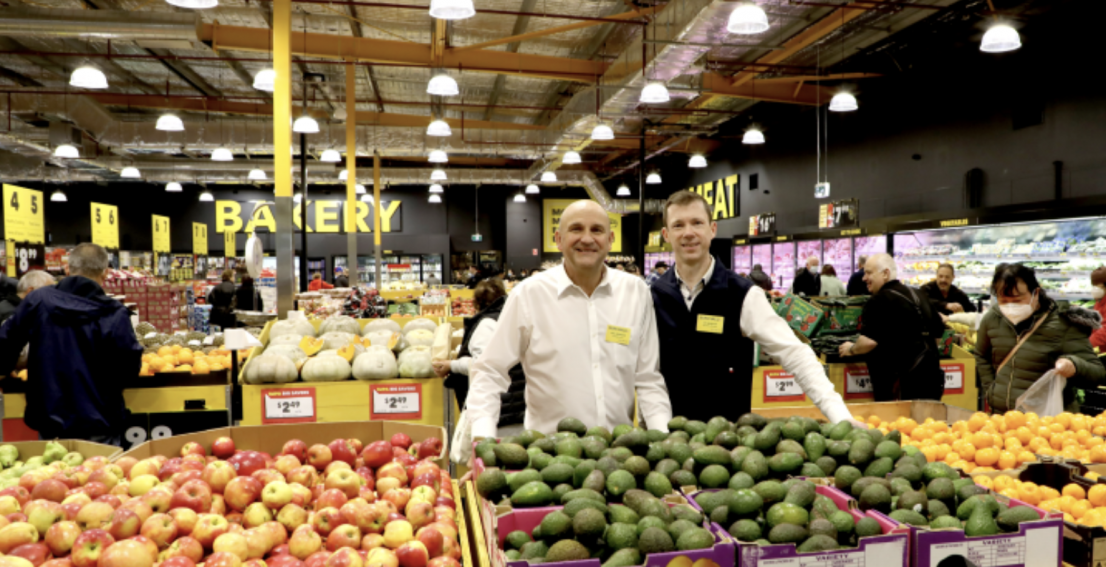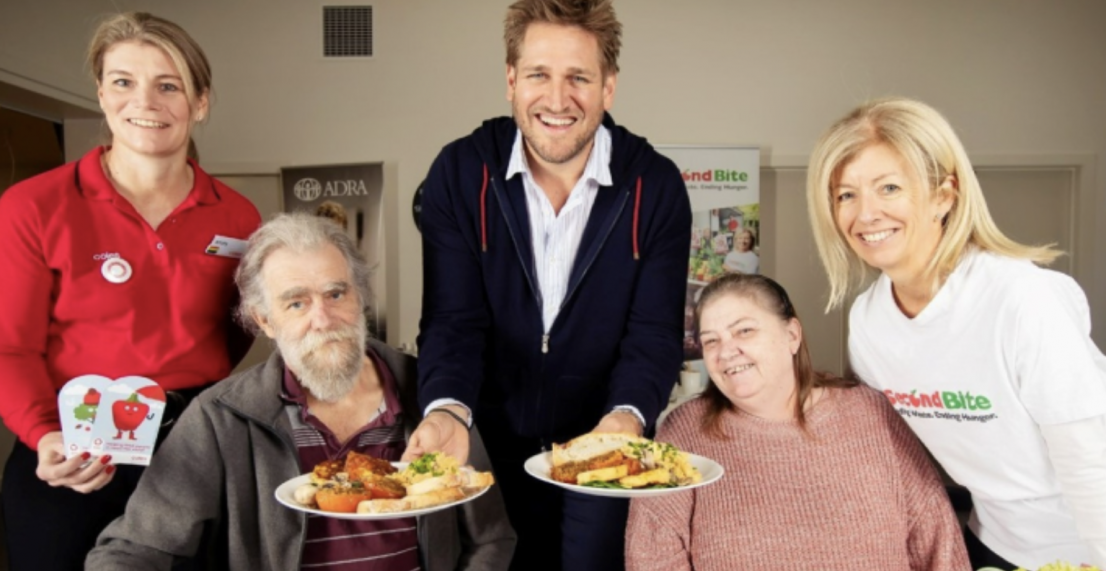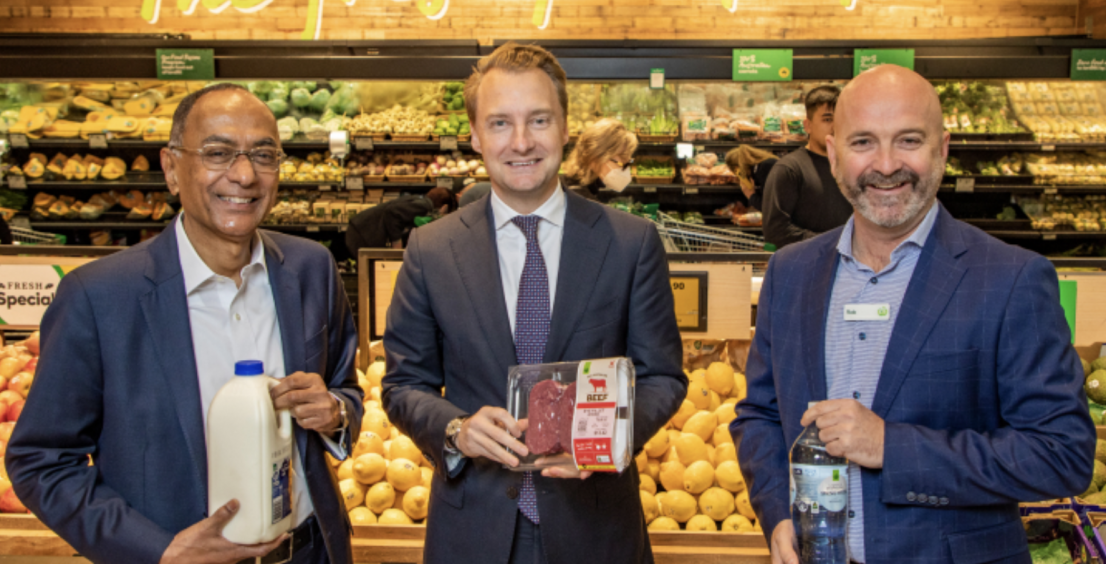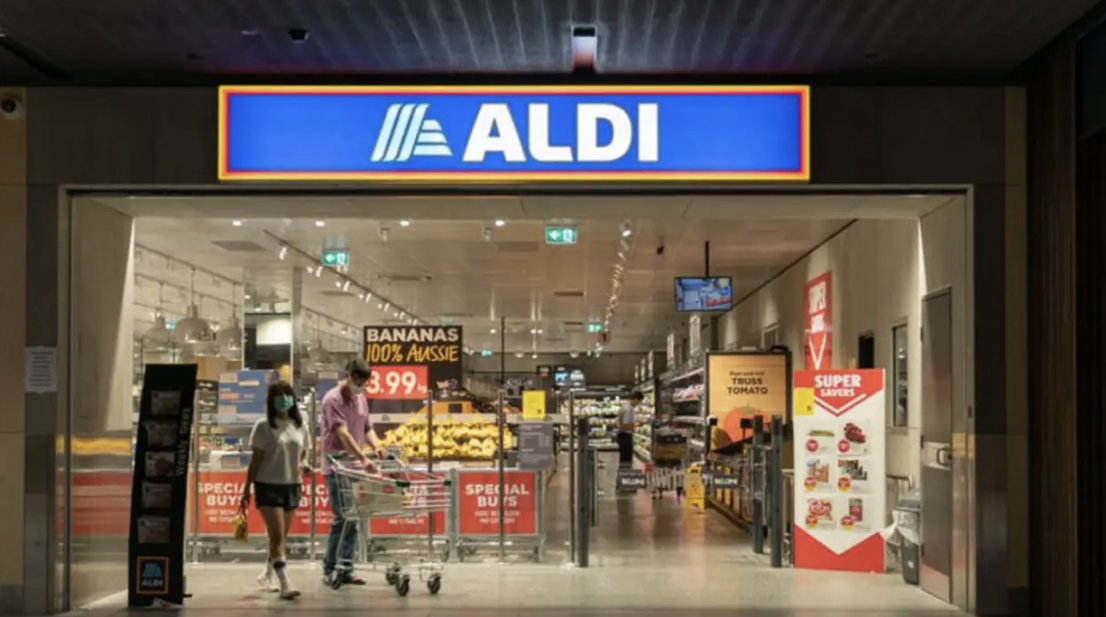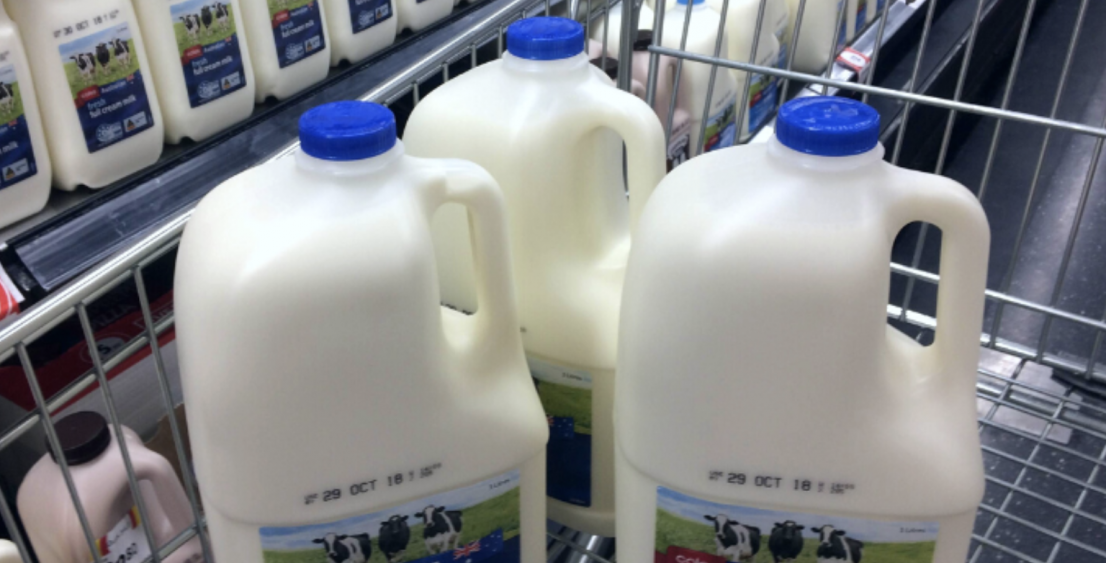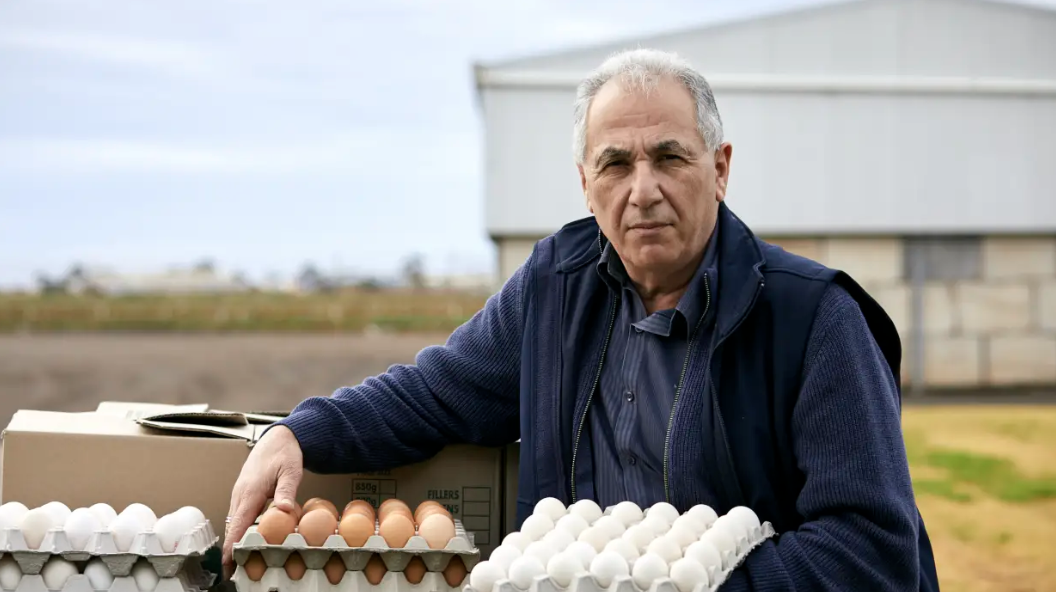
Supermarkets are facing pressure to increase the price of eggs, as farmers face soaring input costs, including transport, fuel, grain and chickens.
As the egg industry faces a structural shift in demand from consumers, shortages are emerging, and Coles has placed a temporary limit on purchases.
Egg farmer Brian Ahmed says consumers need to pay $10 for a dozen free-range eggs at the supermarket or risk seeing producers go out of business as input costs rocket.
Mr Ahmed, who is the Victorian director of Egg Farmers Australia, said grain prices, which account for about 60 per cent of his production costs, had risen 50 per cent in the past six months, and the cost of chickens had risen 36 per cent.
Farmers are not getting a big enough cut from supermarket sales, he says, to make up for the “double whammy” of rising input costs and the growing demand for free-range eggs, which are more expensive to produce because of higher mortality, lower production and increase in feed consumption.
Free-range eggs now represent 59 per cent of the value of supermarket egg sales. Cage eggs make up 28 per cent, barn-laid eggs 10 per cent and organic free-range eggs account for the balance, according to the latest data from Australian Eggs.
But Mr Ahmed, who is also president of the Victorian Farmers Federation egg group, said a colder than normal winter had contributed to the country’s egg shortage as free-range birds had not laid as many eggs.
‘Hit from every angle’
“Production costs have gone through the roof for egg farmers. We’re being hit from every angle – transport, fuel, grain, chickens, and packaging,” he told AFR Weekend.
“We cannot absorb those increased costs. Consumers have to pay for the inefficiencies of that farming system as well as the rising input costs – $10 for a dozen free-range eggs is where it needs to be. But the farmer has to get an increased cut, that’s the important thing. It’s got to be fair.”
Mr Ahmed produces cage eggs himself and has had to raise the farmgate price of his biggest seller, a 700-gram tray of a dozen eggs, by a dollar to $5.
Adam Crew, financial controller of the nearby Casaccio Egg Farms, said the price of basic feed, which made up at least 50 per cent of his business costs, had gone up by $111 per tonne to $614, and the monthly feed bill was coming in at nearly $200,000.
Casaccio, he added, had placed purchase limits on its eggs as “panic buying” had exacerbated the shortage.
Finding the happy medium
“There’s a huge shortage at the moment. We’ve had to cut back our supply to cafés and restaurants,” Mr Crew said.
Casaccio has also had to raise its egg prices by 25 per cent and Mr Crew said egg farmers turning over $10 million would now be lucky to make $300,000 in net profit. He agrees with Mr Ahmed that the price of eggs on supermarket shelves had to rise, but he reckons $10 is too steep for consumers.
“Eggs are the most affordable protein source that low-income families can buy, so I’d like to think there’s a happy medium around $8.50. Supermarkets have to revise their margins though,” he said.
Egg Farmers Australia chief executive Melinda Hashimoto said that at the national level, egg farms were paying 20 per cent more for pullets (young laying hens), 25 per cent more for fuel, and 141 per cent more for canola on top of rising feed grain costs.
Australian Eggs managing director Rowan McMonnies said COVID-19 had contributed to the country’s egg shortage.
“Free range production is more complex than other systems as there are more variables to manage, including seasonal weather conditions,” he said.
“Egg farmers are usually able to meet demand across the year through planning, but COVID disruption has made this difficult.”
The industry body says demand is rising, and the average Australian consumes 249 eggs a year, up from 221 in 2015.
Woolworths and Aldi have not placed a temporary limit on egg purchases.



